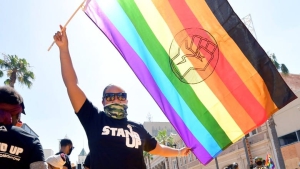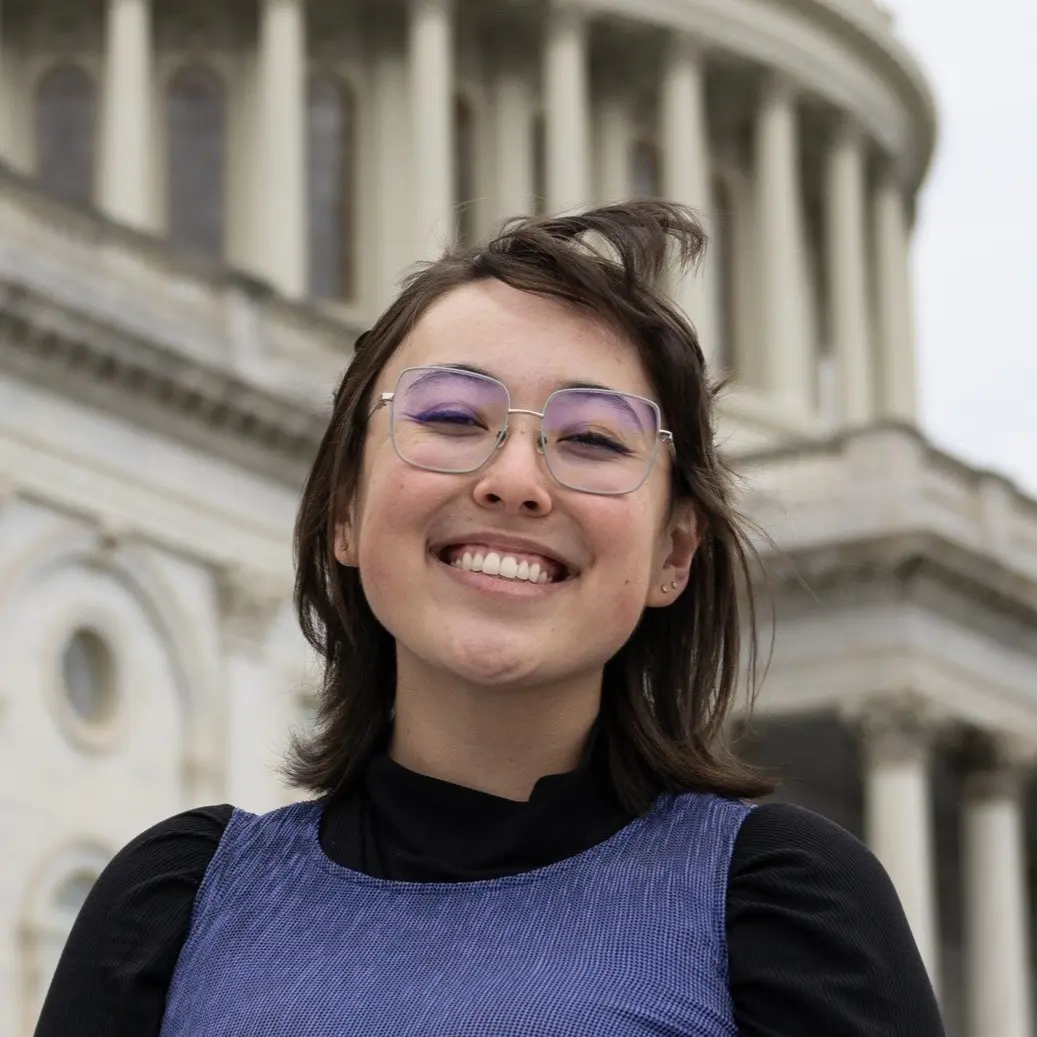
My name is Karolina Viera, and I grew up in one of the most diverse cities in the U.S., Washington D.C. Growing up in D.C. and attending predominately Black and Latinx elementary and middle schools, I never experienced explicit discrimination. My high school was less diverse, but even then, I was never in a position that made me feel discriminated against because of my appearance. As a Latinx person, I have always been aware that this is not the experience for others in my city or within my own community, which has motivated me to address this topic through this medium. The colorism within the Latinx community is an issue often dismissed, and the intersectional identity of being LGBTQ+ and Black is a topic that is disregarded even more often. I wrote this piece to encourage each of us to reflect on our upbringing, how our identities unintentionally affect how people treat us, and ask ourselves if we are actively anti-racist.
According to a study conducted by Stonewall, three in five Black LGBT people in the U.K. have experienced racial discrimination within the LGBTQ+ community. This statistic is higher than the racial incidents reported by non-Black POC by 10%.

https://www.cbc.ca/news/canada/all-black-lives-matter-black-lgbtq-voices-1.5627988 – (Matt Winkelmeyer/Getty Images)
One of the most common mistakes when discussing marginalized groups is generalizing experiences while ignoring the specific problems a subgroup may face. Anti-Blackness within the LGBTQ+ community is prevalent and thriving, but it may be hard to recognize. The voices of Black LGBTQ+ people are nearly silenced, and it is our duty to find ways to be genuine allies. In a published master’s thesis, Clarence Ezra Brown III, a Virginia Tech alumnus with a concentration in Africana Studies and Sociology, explained a triple consciousness feeling he faces because of his sexuality and race.
Brown expressed, “As a gay Black man I often felt isolated between [the Black and LGBT] communities that do not want me or that do not even care to recognize that I am there.”
The feeling of isolation due to identity is at the heart of Malcolm X’s theory of double consciousness. The split in self that Black Americans face while trying to unite their American and African American identities can be frustrating due to judging oneself through the standards of others. Brown’s experience demonstrates additional strife for Black LGBTQ+ Americans. The experiences of Black LGBTQ+ people differ from those of white LGBTQ+ people because of the implications of being Black in a country that values whiteness, and this creates not only a challenge in feeling secure with one’s identity but also progressing towards equality.
The dirty little secret about the homosexual population is that white gay people are just as racist as white straight people. – Keith Boykin
Anti-Blackness takes the form of social exclusion and explicit racism but can also be more insidious. In Brown’s thesis, Keith Boykin, a prominent researcher on racism in the LGBTQ+ community, states, “[t]o be white and homosexual and not to challenge or question the absence of Black lesbians and gays in the culture is itself an element of racism.”
The whitewashing of the community has resulted in a lack of representation of Black LGBTQ+ people from media to politics. Of the 987 LGBTQ elected officials in the U.S., almost 9% are Black, an under-representation.
Armando Sanchez, a brown Latino social worker, compliments Brown’s view and indirectly critiques current statistics on allgo by asserting, “[t]his omission harms Black queer and trans people because it sends a message that their life experience is not important enough to be told, or that their Blackness, queerness, and trans identity cannot exist as one.” By being silent on issues affecting Black LGBTQ+ people, one is contributing to the problem. It is not enough to be aware; our community must take action to tear down this barrier. Victory Institute runs a program specifically focused on training more candidates of color: the Victory Empowerment Fellowship, which aims to play a role in dismantling racism within the LGBTQ+ community.
History isn’t something you look back at and say it was inevitable, it happens because people make decisions that are sometimes very impulsive and of the moment, but those moments are cumulative realities. – Marsha P. Johnson
Racism thrives when we allow it. The only way to defeat this evil is by actively being anti-racist and addressing the issues affecting our community. It is time for non-Black POC and white people to feel uncomfortable and dismantle harmful norms.
Armando Sanchez’s Reflection Questions Can Serve as a Guide for Non-Black Individuals to Recognize Biases
- How do I feel about being pro-Black in an anti-Black society? What challenges can I anticipate within myself and my upbringing as I make this shift? What challenges can I anticipate outside of me?
- In what areas of my life can I speak up for, step aside and make room for, or amplify the inclusion of Black people and their stories?
- What will I lose, or perceive to lose, if I were to live as an anti-racist and pro-Black queer person? What do I stand to gain?
Trevor Project Guidelines to Anti-Racism
- Do the work. It is not the job of Black people to educate you on the racial injustices they face. Proactively seek out resources that allow you to engage in meaningful dialogue with Black people on their lived experiences, so that you can fill in the gaps of your understanding. There will be moments when you are wrong or feel uncomfortable, and it’s okay to acknowledge these moments and learn from them. This is sometimes required as you learn how to be a real ally, and unlearn some of the assumptions you’ve had about race.
- Hold yourself accountable. Examine how your (un)conscious bias — and we all have it — creates or reinforces harmful conditions for Black people. With this knowledge, consider the role that you or anyone from your community plays in shaping the lived experience of Black people.
- Listen. Open yourself up to understanding without the desire to be heard. It is an incredibly personal and vulnerable decision for someone to approach you with a conversation regarding race and how that intersects with their other identities. Respect their experience even if there are elements that do not align with your own.
- Action. Think about the ways you can use your privilege to support the liberation of all Black people. Use your voice to uplift the voices of Black people, educate others, support Black businesses, creators, organizers, and vote!


